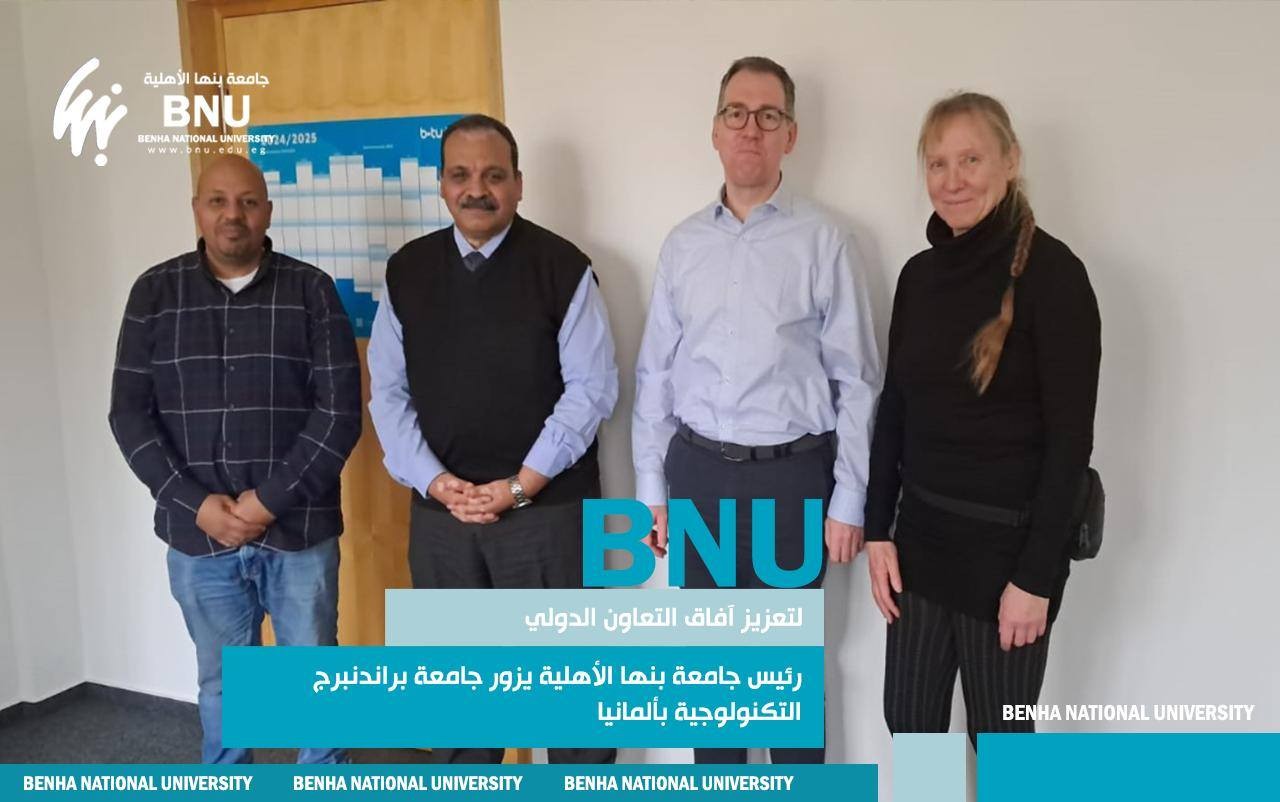In an effort to strengthen academic and research collaboration between international educational institutions, Professor Tamer Samir, President of Benha National University, made an official visit to Brandenburg University of Technology in Berlin, Germany. The visit included meetings with the Vice President of the university and the Head of the Department of Materials Technology and Engineering, where they discussed avenues for joint cooperation in training and scientific research.
During the visit, Professor Tamer Samir, accompanied by Professor Ahmed Omar, a lecturer at the Faculty of Engineering in Shubra, Benha University, toured the university. They inspected the university library, materials manufacturing workshops, and advanced materials characterization laboratories. The visit also included several meetings discussing the significant achievements of the German university and its prominent role in addressing industrial challenges, reflecting its commitment to advancing scientific research and its practical applications.
Professor Tamer Samir emphasized that this visit is part of the student and faculty exchange agreement between Benha University and European Union universities under the Erasmus program. It also aligns with the strategy of Benha National University aimed at enhancing cooperation with prestigious international academic institutions and improving the level of education and scientific research in Egypt. He highlighted the importance of establishing dual degree programs between the two universities in distinguished programs that serve the labor market, providing advanced training opportunities for students and faculty members, as well as gaining insights into the latest technologies and innovations in laboratory automation.
It is noteworthy that Benha National University seeks to strengthen its international partnerships to support the national strategy for higher education and scientific research. This is achieved through fostering communication and enhancing the links between national institutions and their international counterparts, supporting the principle of international benchmarking by exchanging academic and research experiences with countries worldwide, and meeting the international standards required in the quality of educational services provided.

